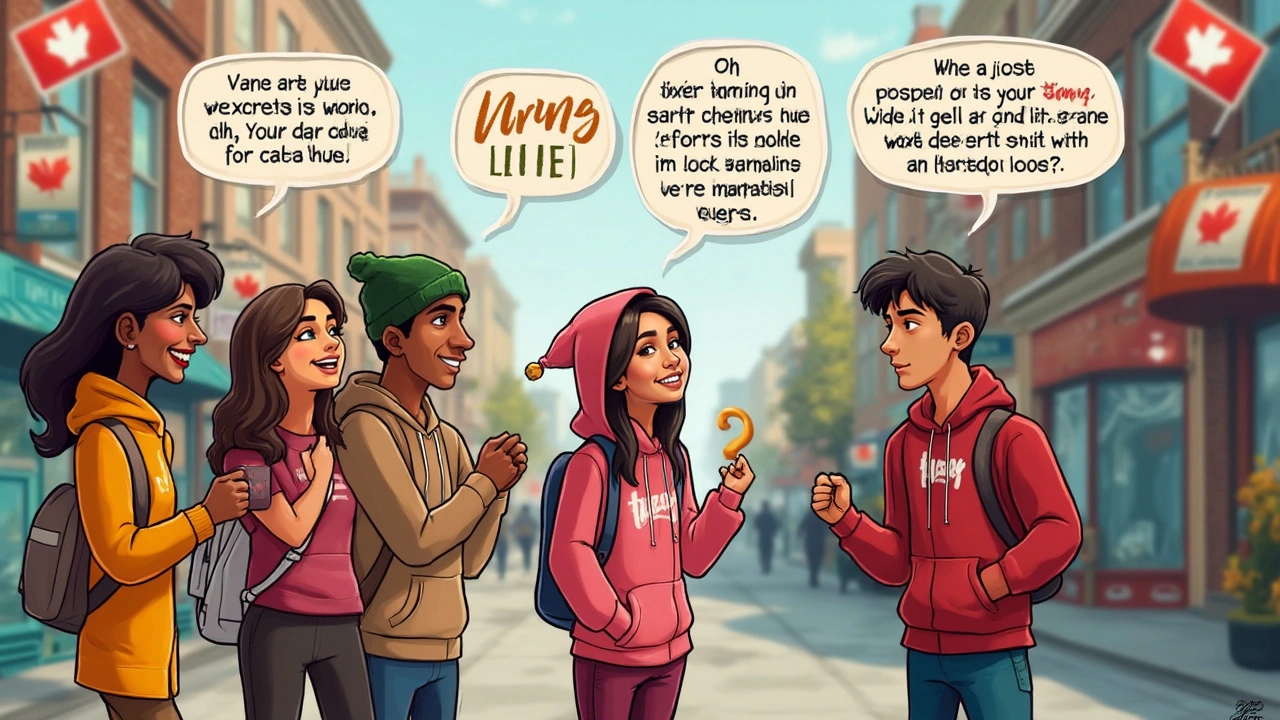Canadian Slang: What It Means and How It Shapes Fashion Talk
When you hear someone say Canadian slang, the informal words and phrases unique to Canada that blend British, American, and local influences. Also known as Canadian English, it's not just about saying 'eh'—it's about how people describe what they wear, especially shoes. In Canada, you won’t hear many people call sneakers 'trainers' like in the UK. Instead, they say 'runners'—a term so common it shows up in every mall, gym, and winter sidewalk. This isn’t just a word swap. It’s a cultural fingerprint. Canadian slang around clothing and footwear reflects a practical, cold-weather mindset. You don’t buy 'boots'—you buy 'winter boots' or 'snow boots'. You don’t wear 'slippers' indoors—you wear 'house shoes'. The language is stripped down, functional, and tells you exactly what you’re getting.
Related terms like footwear terms Canada, the specific words used across Canada to describe shoes, from casual to workwear are deeply tied to climate and lifestyle. In places like Winnipeg or Edmonton, a pair of 'runners' might mean a lightweight shoe for summer jogging, but in the same country, someone in Newfoundland could mean a heavy-duty boot with a rubber sole for ice. This variation isn’t random—it’s shaped by geography, local brands, and even Indigenous languages that have quietly influenced everyday speech. You’ll find 'toques' (knit hats) paired with 'runners' in winter ads, and 'parkas' worn with 'snow boots' in every Canadian city. These aren’t just fashion choices—they’re survival habits turned into vocabulary. And when you see posts here about 'trainers' in England or 'sneakers' in the US, you start to realize: Canadian slang sits right in the middle. It borrows, adapts, and makes it its own.
There’s also shoe slang, colloquial terms used to describe footwear based on style, function, or brand loyalty that shows up in Canadian stores and online forums. You might hear someone say, 'I got these new runners on sale' or 'These boots are too stiff—need to break them in'. No one says 'orthopedic footwear' unless they’re at a clinic. In daily talk, it’s all about comfort, durability, and whether it works in the snow. That’s why the posts in this collection make sense together. You’ll find guides on boot fit, why Lululemon costs so much, how to pick slippers, and what makes a $200 suit worth it—all filtered through the same practical lens. Canadian slang doesn’t care about trends. It cares about what lasts, what keeps you warm, and what doesn’t hurt after walking ten blocks in freezing rain. And that’s exactly what you’ll see in the articles below: real talk about what people actually wear, how they describe it, and why it matters when the temperature drops.

Why Do People Call It a Bunny Hug? The Surprising Story Behind the Name
Explore the quirky Canadian term 'bunny hug,' its roots in Saskatchewan, and why locals insist it’s not just a hoodie. Discover history, trivia, and advice for using this fun slang.
- posted by Elliot Marwood
- 26 June 2025
- Comments [ 0
]
-
Fashion
more
